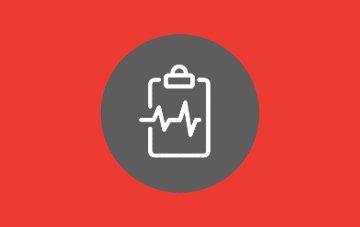Accurate Cardiac Testing Services
Over 40 Years of Experience | In-Office Testing | Board-Certified Cardiology Specialists
Board-Certified Cardiology Specialists
Over 40 Years of Experience
In-Office Testing
Identify Cardiovascular Issues With the Help of Our In-Office Cardiac Testing
At Midwest Cardiology Associates P.C., we conduct various in-depth cardiac examinations using the latest diagnostic technology to provide you with the best possible heart care. Give your heart the care it deserves with our expert assistance. Contact Midwest Cardiology Associates P.C. today.
Read Through the List of Cardiac Tests We Conduct

LOOP Recorder Implants

Vascular Testing
- Transcranial Doppler
- Endovenous Ablation
- Aortic Ultra Sound
- Upper/Lower Arterial & Venous Dopplers
- ABI Testing

Cardiac Stress Test
An exercise stress test is a screening or diagnostic procedure performed to evaluate how well the heart works during exercise or stress. During this procedure, a person usually walks or runs on a treadmill while a monitor measures the electrical signals made by the heart. An unhealthy heart makes different electrical signals than a healthy heart.

Echocardiogram
A diagnostic test that uses sound waves to create pictures of the heart. The sound waves are sent through a device that picks up the echoes as they bounce off different parts of the heart. The test is usually done to study how well the heart is pumping blood and how well the heart valves are working.

Holter Monitor
A small recorder (monitor) that monitors for abnormal heartbeats. It is attached to electrodes on your chest.

EKG
An electrocardiogram (EKG, ECG) is a test in which electrode patches are attached to the skin to monitor the electrical activity of the heart. ECGs can observe heart rhythm, diagnose heart attacks, examine blood flow to and from the heart, and more.

Carotid Doppler
(Standard or Doppler) is a non-invasive, painless screening test that uses high-frequency sound waves to view the carotid arteries. It looks for plaques and blood clots and determines whether the arteries are narrowed or blocked. A Doppler ultrasound shows the movement of blood though the blood vessels. Ultrasound imaging does not use X-rays.

Stress Echocardiogram
This is an echocardiogram that is performed while the person exercises on a treadmill or stationary bicycle. This test can be used to visualize the motion of the heart's walls and pumping action when the heart is stressed. It may reveal a lack of blood flow that isn't always apparent on other heart tests. The electrocardiogram is performed just prior and just after the exercise.

Dobutamine Stress Echocardiogram
This is another form of stress echocardiogram. However, instead of exercising to stress the heart, the stress is obtained by giving a drug that stimulates the heart and makes it "think" it is exercising. The test is used to evaluate your heart and valve function when you are unable to exercise on a treadmill or stationary bike. It is also used to determine how well your heart tolerates activity and your likelihood of having coronary artery disease (blocked arteries) and evaluates the effectiveness of your cardiac treatment plan.

Nuclear Stress Test
This helps figure out which parts of the heart are not working well. A small amount of radioactive substance will be injected into you. Your doctor will use a special camera to see rays emitted from the substance in your body. This will give the doctor clear pictures of the heart tissue on a monitor. These pictures are done at rest and after exercise. Your doctor will be able to spot areas of your heart that aren't getting enough blood. The test could last to up to 4 hours to allow enough time for the radioactive substance to flow through your body.

Share On: